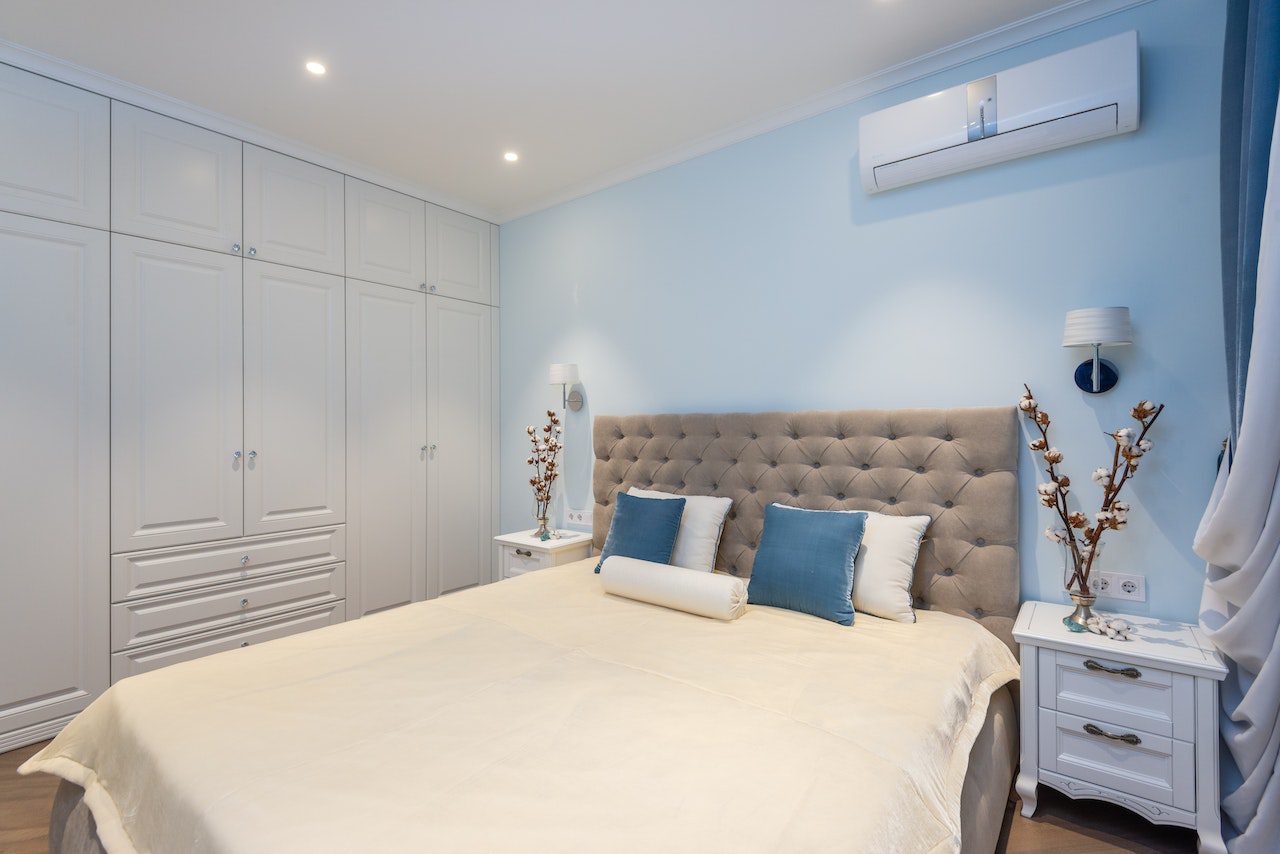Room temperature may considerably impact sleep quality, mainly if it is excessively hot or cold. While 65°F (18.3°C) is the best temperature for AC for sleeping, individual preferences may differ somewhat from this.
It might be simpler to fall asleep and have better quality and the best temperature for AC to sleep in night and other sleep hygiene practices. This is crucial for those who live in warm and summer areas.
The ideal and best temperature for ac at night, how temperature affects sleep, sleep improvement, and advice are all covered in this article.
Best AC temperature for sleeping:
Depending on your comfort levels, everyone has a different optimal sleeping temperature. On the other hand, cooler temperatures are more effective than warmer ones since they help lower your body’s core temperature. According to experts, 25 degrees Celsius is the best AC temperature for resting at night. Use the thermostat on your air conditioner to regulate the temperature in your room.
Due in part to its impact on circadian rhythms, which regulate physiological processes including core body temperature and the sleep-wake cycle, a chilly atmosphere aids in better sleep. By adjusting the AC to a comfortable temperature, you can manage your core body temperature, which gradually reduces in the hours leading up to bedtime and while you sleep.
The body can tell when it is time to go to bed and fall asleep when its temperature drops. Falling asleep and sleeping soundly in an overly warm or chilly room may be more challenging since it will interfere with these signals. Also, those whose circadian rhythms are unbalanced or not in sync with the day and night cycle may find it more challenging to get adequate sleep and have more sleep disturbances.
Sleeping with AC might be risky.
If a person maintains their AC temperature unit clean and makes sure it receives regular maintenance, it is okay to do when you’re trying to sleep. Usually, these units must have their filters and ducts cleaned twice a year. By doing this, airborne pollutants like dust mites, volatile organic compounds, and pet dander are less likely to build up and spread into the environment. Mould, pollen, and bacteria may also irritate.
Advantages of best AC temperature for sleeping
Avoiding heat-related ailments, including dehydration, heatstroke, and heat exhaustion, is much more accessible by sleeping in an air-conditioned environment. Ordinary AC Temperature filters can keep dust and other particles from entering the unit but won’t clean the air. Specialized filters can assist in air purification by eliminating irritants, including pollen, germs, and microorganisms.
In addition to promoting cleaner air, using an AC system enables a person to shut the windows while sleeping and use an air purifier. This benefits those suffering from asthma, allergies, or respiratory conditions.
Our internal body temperature changes regularly during the day. Without our awareness, our brain achieves this on its own. Our body’s core temperature will start to drop at night when it’s time to wind down, allowing us to enter the sleep cycle by lowering our body temperature to a healthy level.
For many of us, overheating as we sleep is normal. Why do chilly or hot temperatures at night tend to wake us up? There’s a rationale based on science for this During REM (rapid eye movement) sleep, the most important rest for body repair and memory consolidation, the brain’s temperature control mechanism will shut down, and the ambient temperature will take over as our body’s primary way of sustaining AC temperature. Because of this, it is crucial that we deliberately create our sleeping environment to be at the ideal temperature for a restful sleep that lasts the entirety of the night.
More sleep advice
People can establish a regular sleep schedule and adopt proper sleep hygiene to increase the quality of their nights’ rest.
People can help themselves sleep better by:
Keeping a consistent sleep schedule and routine restricting midday naps to 30 minutes, even on weekends, taking regular exercise, using a white noise machine or earplugs if noise is a worry using a light-blocking eye mask and utilizing cozy, natural fiber bedding and caring for it properly. Purchasing a pair of pillows and a mattress of superior quality, nakedness when sleeping or donning natural fiber pajamas, breathing exercises, meditation, or relaxing stretches using scented candles, room sprays, or essential oils before bed to tell the brain that it is time for bed taking a warm shower or bath 1-2 hours before bed eating a light, easily digestible evening meal, as large meals can overstimulate digestion, and using essential oils to tell the brain that it is time for bed.
Final Thought:
Our health and well-being depend on getting the correct kind and quantity of sleep. The AC temperature of our sleeping environment can significantly influence our sleep quality. We advise the following to ensure that you and your family have a good night’s sleep throughout the summer:
Set your bedroom air conditioner’s thermostat to 25 degrees Celsius for the best sleeping conditions.
Consider installing an air conditioner with a built-in “sleep mode” and sophisticated movement sensor to keep your power costs low and get a good night’s sleep.

